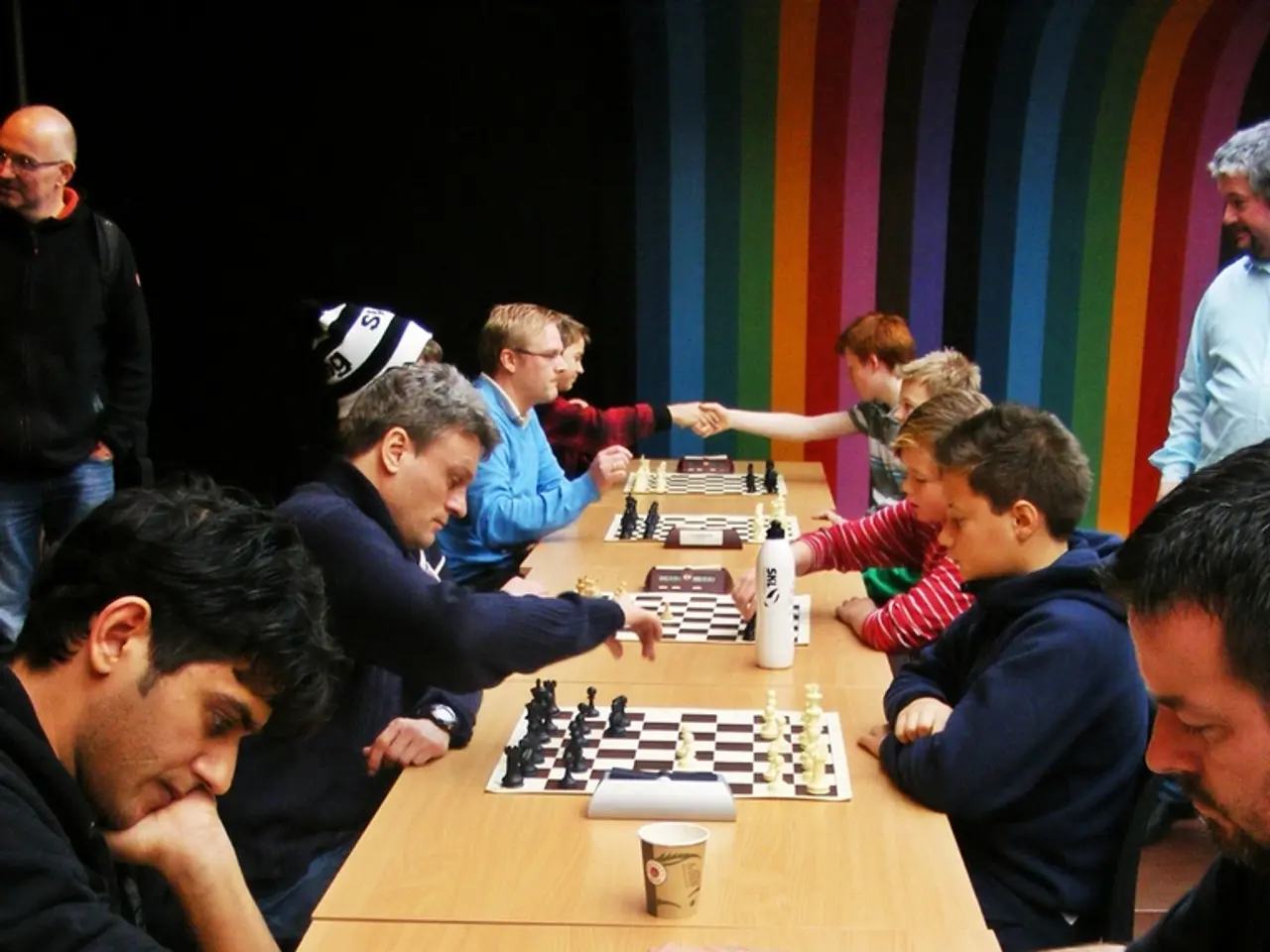"Negreanu advocates for significant transformation in the poker world"
The World Series of Poker (WSOP) this summer saw the use of action clocks and time extension chips in high-roller events, as the issue of slow play and stalling continued to be a topic of debate. One prominent figure pushing for change is poker legend Daniel Negreanu, who has been advocating for the implementation of chess clocks in poker.
Negreanu's call for action comes in the wake of incidents such as Ike Haxton's six-minute stall on a pay jump in the Main Event, and the criticism faced by players like Martin Kabrhel and Will Kassouf for stalling during the WSOP. Negreanu has even called out these players for their tactics, stating that deliberate folding to gain time could be considered collusion, which is against the rules.
The World Poker Tour (WPT) already uses action clocks, giving players 15 seconds preflop and 30 seconds for each subsequent decision. The European Poker Tour has also adopted shot clocks for many tournaments. However, the WSOP may introduce some form of action clock in 2026 due to the persistent issue of slow pace of play.
Chess clocks, with their 'delay' system that doesn't start counting down until the built-in delay is over, are another option under consideration. Negreanu favours a combination of the two - an increment-style clock that rewards fast play. This system would incentivize players not to waste time because time is now a commodity, potentially speeding up decisions, maintaining game flow, and reducing unfair delays caused by players intentionally taking excessive time.
However, implementing action clocks comes with its challenges. One such challenge is the need for additional training for dealers, which could make the training even more time-consuming. The community is also split on how chess clocks could work in poker, with two main options being delay and increment.
While chess clocks enforce strict time limits for making moves, which could effectively prevent stalling by penalizing players who exceed their allotted time, they may also add stress that harms decision quality, especially in complex spots requiring careful analysis. Faster play induced by clocks could undermine strategic depth and diminish enjoyment for players who rely on deliberate contemplation. Moreover, imposing uniform time limits may disadvantage amateurs or recreational players who naturally take longer, reducing inclusivity.
In summary, the adoption of chess clocks in poker could effectively curb slow play and stalling but risk compromising decision quality and the game's psychological nuance. Careful rule design and balance will be necessary to avoid unintended negative impacts.
Interestingly, Bryson DeChambeau, a golf star, has suggested timing entire golf rounds to speed up the pace of play in pro golf. Whether this concept will find its way into poker remains to be seen, but one thing is certain - the conversation around slow play and stalling in poker is far from over.
[1] [Source 1] [2] [Source 2] [3] [Source 3] [4] [Source 4]
- The casino-gambling industry, not just poker, is exploring the incorporation of time-management tools, such as action clocks and chess clocks, to address issues like slow play and stalling, as evidenced by the World Series of Poker's potential introduction of action clocks in 2026.
- Gambling trends indicate a growing emphasis on speeding up games without compromising the strategic depth, as seen in debates about the pros and cons of implementing chess clocks in poker, where the 'delay' system is under consideration along with an increment-style clock that rewards fast play.
- In parallel to the poker world, sports-betting environments like golf are also considering adopting similar timing mechanisms, such as Bryson DeChambeau's proposal to time entire golf rounds, in an attempt to tackle the slow pace of play problem, hinting at a broader trajectory in the casino-and-gambling landscape.




